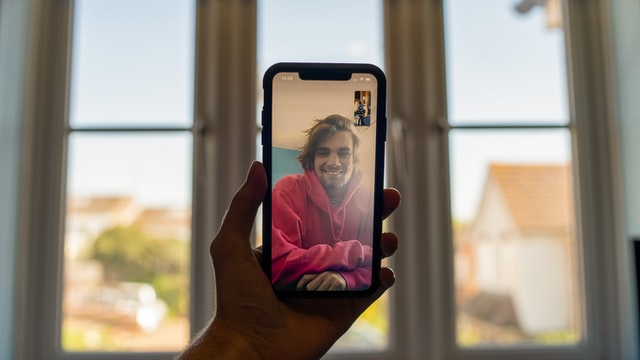In a 2018 study across the UK and the US more than a fifth of surveyed adults reported feeling lonely. Today in most urban areas, 30% of households consist of only one person. Millennials especially are at risk to suffer intense and prolonged feelings of loneliness due to isolation, lack of social connections and a lack of opportunities.
In the past year the pandemic increased the intensity and frequency of bouts of loneliness and depression for 14% of respondents in a recent study.
The Role Of Online Dating Apps
According to experts from Datinghive, worldwide pandemic and the isolation it imposed boosted not only Netflix, Nintendo and Co. Apparently it has also ushered a new era of mass online dating, making it more approachable and legitimate for the masses. The quarantine caused a doubling of clicks for online dating platforms.
While it became increasingly difficult to visit with friends, let along meet new people, the barrier to using dating apps sunk for all ages.
From traditional marriage matchmaking services to online apps for casual encounters, providers saw their click rates soar. Everyone reached out to meet someone new. New dating platforms emerged to meet increasing needs. And in times of social distancing these needs were not only romantic but social contact.
Comparison sites such as datinghive help singles find a fitting dating app tailored to their specific profile, background and proclivities. From diverse specialized dating platforms members can select a site that promises a perfect match.
Originally set up to provide an easy way to contact singles in the neighborhood dating apps aim to facilitate personal meet and hook ups. During lockdown however many online dating platforms such as Tinder expanded their geographic reach to enable worldwide contacts and saw their reach increase.
From an initial contact to providing platforms of exchange and conversation, online dating provided a chance for sharing and combatting the dullness of life in lockdown. Without the possibility of meeting in person, users started chatting with strangers. Chats turned into talks. Strangers become friends. And began to share. Online dating apps turned from being sites for a quick connection to a forum for connectedness and extended conversations.
Consequences Of Loneliness
Loneliness affects your wellbeing in profound physical manifestations. Chronic feelings of loneliness compromise the immune system, raise blood sugar and cortisol, and make one susceptible to a range of health problems, such as cardiovascular diseases, depression, and dementia. It is a precursor to poverty and disenfranchisement.
Causes
Research points to the discrepancy between the desired range of social contacts and the present reduction of opportunities to socialize, connect, work together. Some blame our competitive, digitalized society, the stress of uprooting to follow jobs to a new city, of losing touch with old friends, of lacking time and opportunity to cultivate a wide social circle.
Yet despite its prevalence, it is considered a taboo. Who openly admits to being lonely? It smacks of incompetence, of not being able to cope successfully, of being unable to relate and build friendship. It is a stigma for the affected. Except when there is a death, few acknowledge their feelings. Aloneness is accepted as it is considered temporary. Loneliness as an existential condition is met with a shameful shrug.
Coping Strategies
Who doesn’t experience feeling alone and disconnected at times? Living in a haze of exhaustion and depletion may be a temporary condition easily remedied by diversions, activities or entertainment shared with others. But how do we cope when all our friends have a significant other to turn to, enjoy the comfort of a family, or hunker down with their roommates to play computer games. Loneliness is the dearth of close friends, a lack of the warmth of human contact, and of emotional and physical touch. It is people.
Lockdown loneliness led to various coping strategies that included hobbies, sports and withdrawal into the solitary life of the mind. But all of these activities may increase feelings of isolation. Well-meaning advice about reaching out to family and friends is useless when friends and family are few and distant.
After the end of the pandemic social life will resume, and we will return to our offices, meet friends at a bar, or share a dinner with our extended family. But for many it will also include new contacts and possibly a new friend or lover.
*collaborative post


























